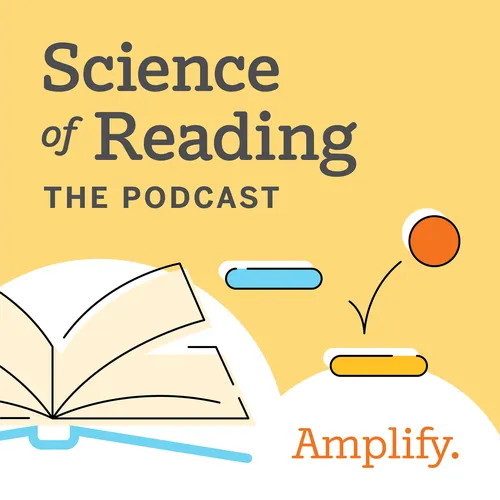S10 E1: The (not so) Simple View of Reading, with Wesley Hoover, Ph.D.
- Author
- Amplify Education
- Published
- Wed 10 Sep 2025
- Episode Link
- None
In this episode of Science of Reading: The Podcast, Susan Lambert is joined by Wesley Hoover, a psycholinguist at the University of Texas at Austin, to discuss the Simple View of Reading and how it can serve as the basis for our understanding of comprehension. Wesley digs into all the complexities of this model—which is only simple at a high level—including the meaning of language comprehension vs. reading comprehension, the impact of word recognition, and using the simple view to identify struggling students. He’ll even address the limitations of the simple view of reading, untangle common misconceptions, and give you tools for assessing the value of any model for reading that you might encounter.
Show notes:
- Submit your questions on comprehension!
- Access free, high-quality resources at our brand-new, companion professional learning page: http://amplify.com/science-of-reading/professional-learning
- Resources:
- Join our community Facebook Group: www.facebook.com/groups/scienceofreading
- Connect with Susan Lambert: https://www.linkedin.com/in/susan-lambert-edd-b1512761/
- Check out Season 2 of the Beyond My Years podcast at.amplify.com/bmy
Quotes:
"Language comprehension is unbounded… the knowledge of the world and being able to express the knowledge of the world in language—that's always a key difficulty you work on for your entire life.” —Wesley Hoover, Ph.D.
“If you're a teacher thinking about language comprehension, whatever time you devote to helping people understand language, if you can be effective in doing that, you'll never waste a kid's time.” —Wesley Hoover, Ph.D.
"To be a reader, you have to be good at two things: word recognition and language comprehension. Both of them are necessary components of reading, but neither one of them is sufficient on its own.”—Wesley Hoover, Ph.D.
Episode timestamps*
03:00 Introduction: Wesley Hoover and the simple view of reading
06:00 What is the simple view of reading?
08:00 What is language comprehension?
10:00 What is word recognition?
11:00 Defining reading comprehension
12:00 Dr. Gough’s big A-Ha! Moment
15:00 Reading competency
16:00 Misconceptions of the simple view of reading
21:00 Changing the size of the boxes
23:00 Extension of the simple view
26:00 Using the simple view to identify kids that are struggling
29:00 What the simple view does or does not address
33:00 Navigating models of reading comprehension
35:00 Is the simple view outdated?
38:00 Why is comprehension worth exploring?
41:00 Final advice
*Timestamps are approximate, rounded to nearest minute
